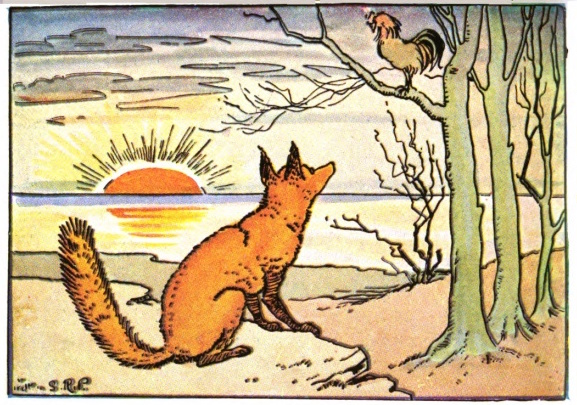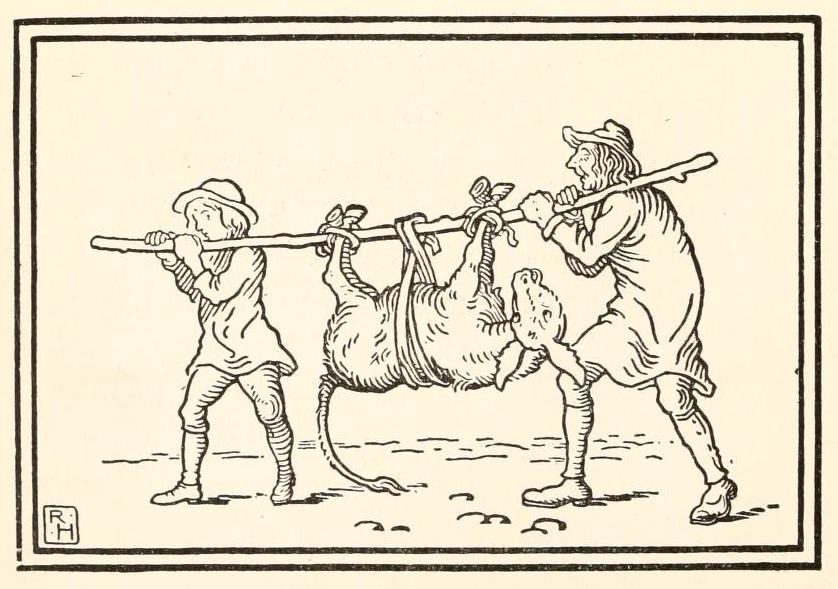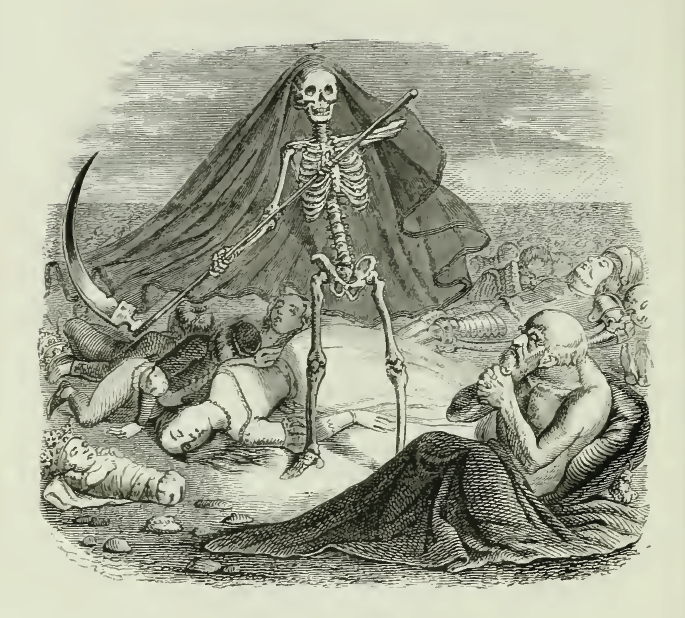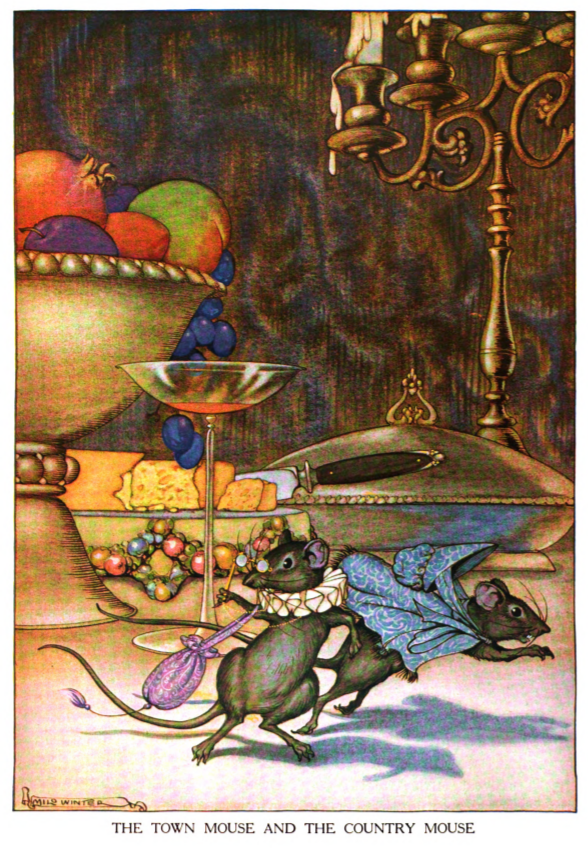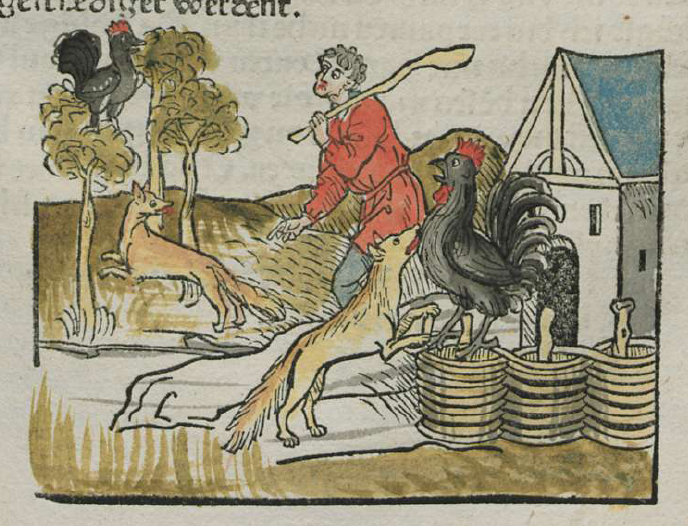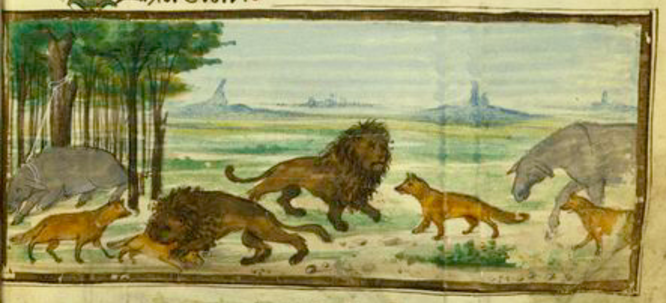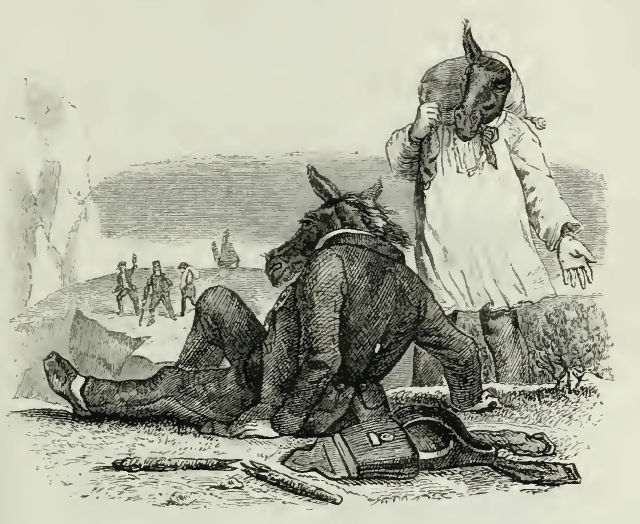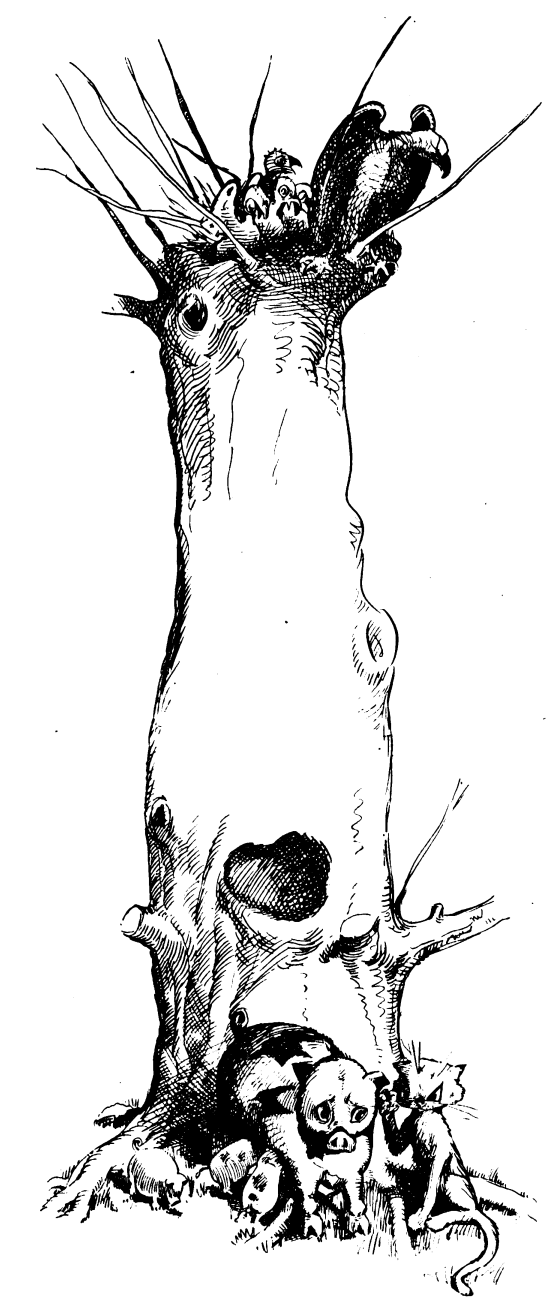The dogs agreed, but when they entered the den of wolves, the wolves tore them to pieces and devoured them.
Inspired by: Mille Fabulae et Una, a collection of Latin fables that I've edited, free to read online. I am not translating the Latin here; instead, I am just telling a 100-word version of the fable.
Notes: This is fable 79. Lupi et Canes, Amici in the book, which is Perry 342.
Inspired by: Mille Fabulae et Una, a collection of Latin fables that I've edited, free to read online. I am not translating the Latin here; instead, I am just telling a 100-word version of the fable.
Notes: This is fable 79. Lupi et Canes, Amici in the book, which is Perry 342.




